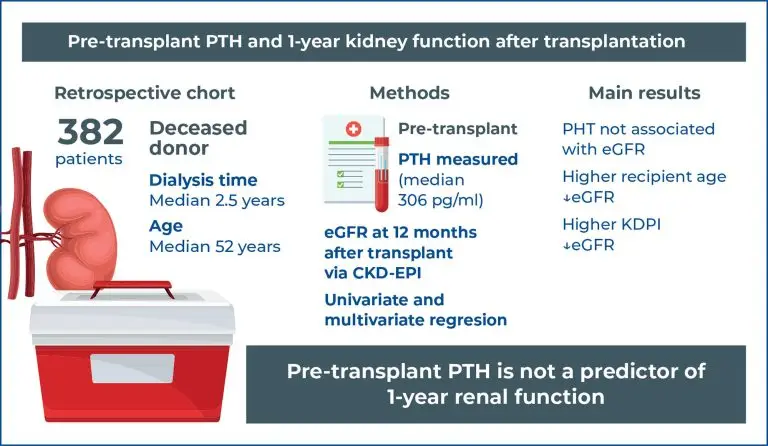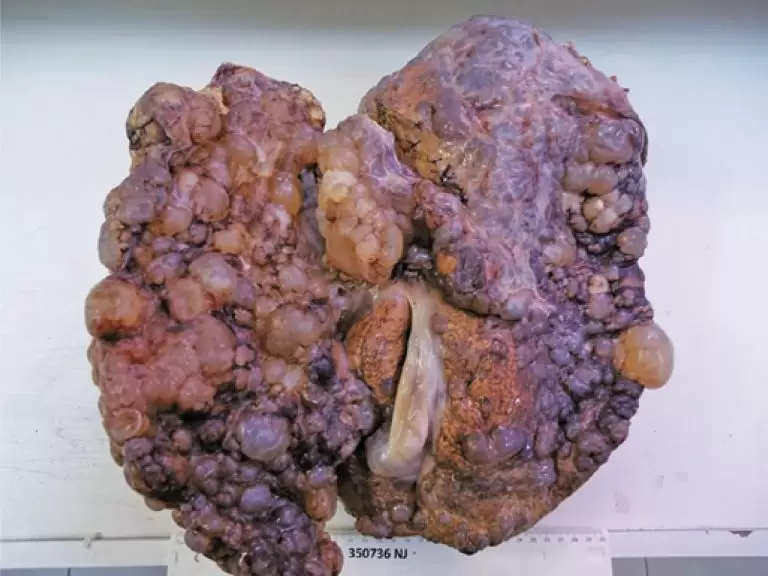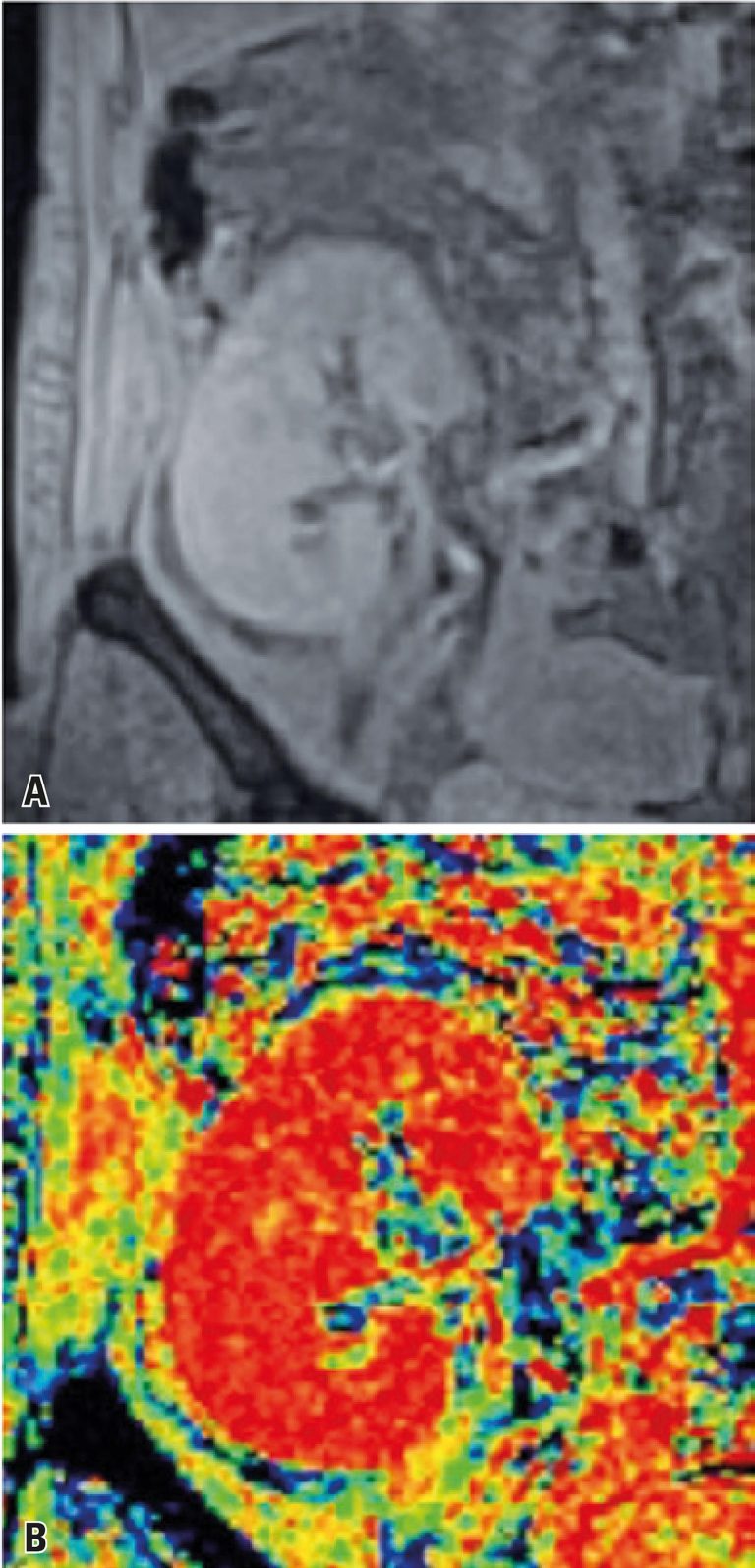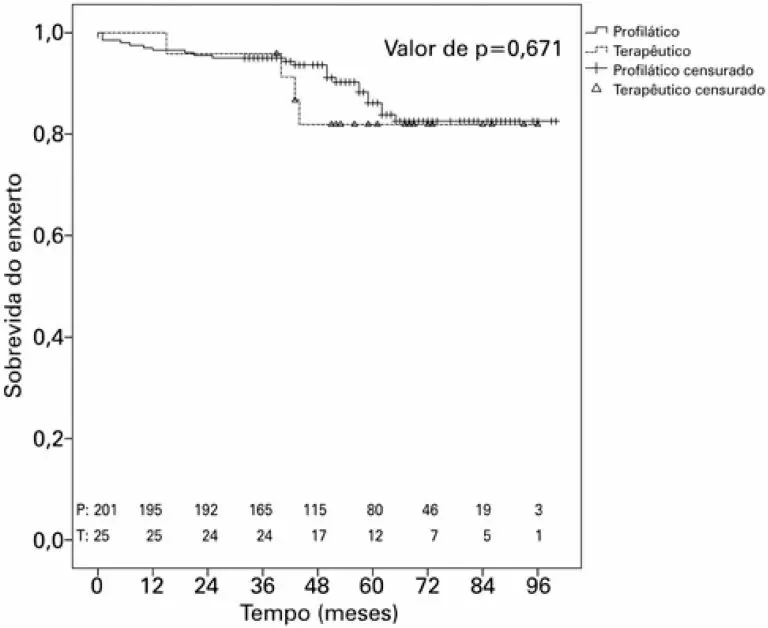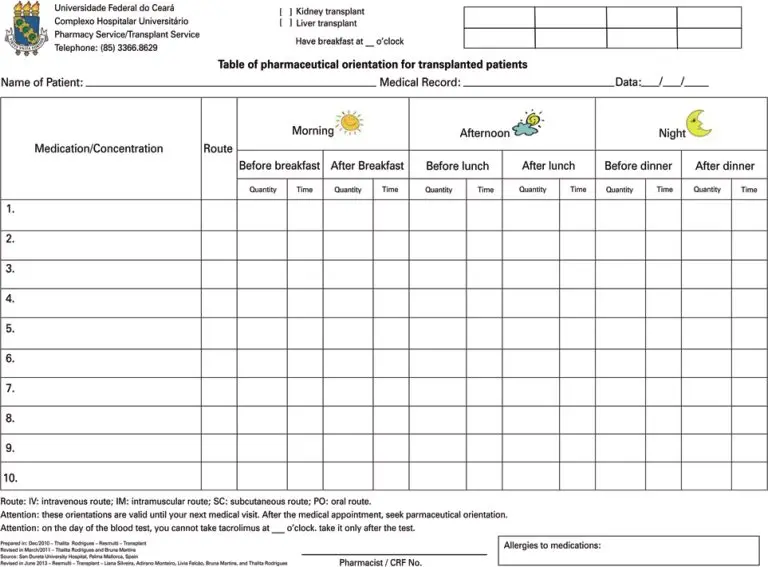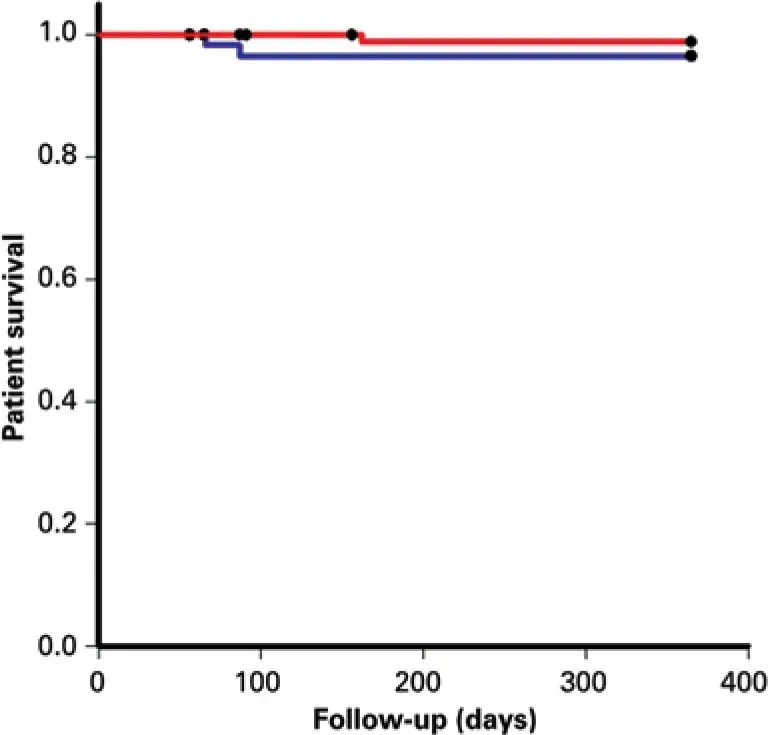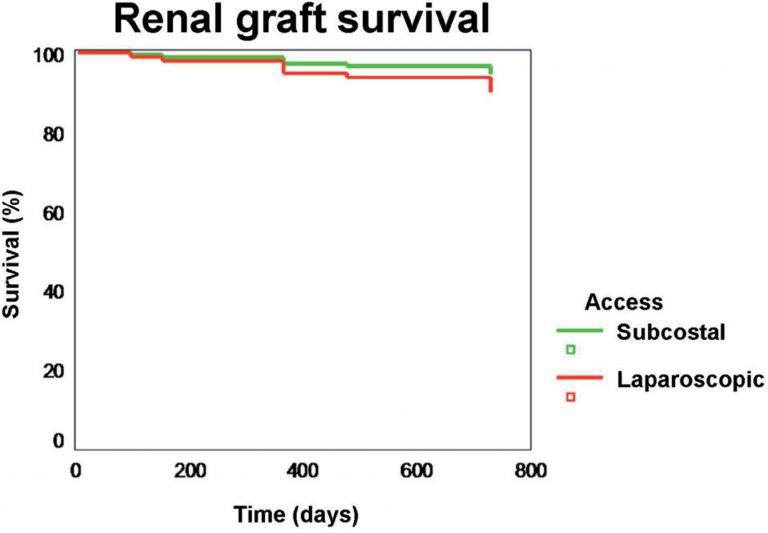28/Aug/2025
Pre-transplant parathyroid hormone serum levels as predictors of kidney function after one year: a retrospective cohort study
einstein (São Paulo). 28/Aug/2025;23:eAO1392.
View Article28/Aug/2025
Pre-transplant parathyroid hormone serum levels as predictors of kidney function after one year: a retrospective cohort study
DOI: 10.31744/einstein_journal/2025AO1392
Highlights ■ Pre-transplant parathyroid hormone levels were not linked to kidney function at 1 year post-transplant. ■ Recipient age showed a negative association with renal function at 12 months. ■ The Kidney Donor Profile Index was a strong predictor of graft function. ■ Individualized risk assessment remains essential for kidney transplant prognosis. ABSTRACT Objective: This study aimed to evaluate the association between pre-transplant parathyroid hormone levels and renal function 1-year after kidney transplantation. Methods: This retrospective cohort study was conducted […]
Keywords: Glomerular filtration rate; Kidney transplantation; Parathyroid hormone
23/May/2023
Combined liver-kidney transplant in polycystic diseases: a case report
DOI: 10.31744/einstein_journal/2023RC0282
ABSTRACT Polycystic liver disease, a hereditary pathology, usually manifests as autosomal dominant polycystic kidney disease. The many cysts in the liver cause massive hepatomegaly, majorly affecting the patient’s quality of life. In cases of refractory symptoms, liver transplantation is the only treatment choice. A 43-year-old woman was followed up as a hepatology outpatient in August 2020, with a progressive increase in abdominal volume, lower limb edema, and cachexia. The patient was diagnosed with polycystic renal and liver disease with massive […]
Keywords: Hepatomegaly; Kidney transplantation; Liver diseases; Liver failure; Liver transplantation; Polycystic kidney, autosomal dominant
04/Mar/2022
What is the role of heat shock protein in abdominal organ transplantation?
DOI: 10.31744/einstein_journal/2022RB6181
ABSTRACT Ischemia-reperfusion injury is a pathophysiological event occuring after abdominal organ transplantation, and has a significant influence on prognosis and survival of the graft. It is involved in delaying the primary function or non-functioning of the graft. The objective of this study was to provide information on heat shock protein mechanisms in ischemia-reperfusion injuries in abdominal organ transplantations, and to indicate the possible factors involved that may influence the graft outcome. Several classes of heat shock proteins are part of […]
Keywords: Heat-shock proteins; Kidney transplantation; Liver transplantation; Organ transplantation; Reperfusion injury
12/Aug/2021
Evaluation of the blood-oxygen-level-dependent (BOLD) sequence with 3 Tesla device in renal transplant patients in the assessment of early allograft disfunction, correlated with biopsy
einstein (São Paulo). 12/Aug/2021;19:eAO6069.
View Article12/Aug/2021
Evaluation of the blood-oxygen-level-dependent (BOLD) sequence with 3 Tesla device in renal transplant patients in the assessment of early allograft disfunction, correlated with biopsy
DOI: 10.31744/einstein_journal/2021AO6069
ABSTRACT Objective To evaluate the ability of blood-oxygen-level-dependent (BOLD) magnetic resonance imaging at 3 Tesla to measure tissue oxygen bioavailability based on R2* values, and to differentiate between acute tubular necrosis and acute rejection compared to renal biopsy (gold standard). Methods A prospective, single-center study, with patients submitted to renal transplantation between 2013 and 2014, who developed graft dysfunction less than 4 weeks after transplantation. All patients were submitted to abdominal magnetic resonance imaging at 3 Tesla using the same […]
Keywords: Biopsy; Kidney transplantation; Magnetic resonance imaging; Primary graft dysfunction
21/Nov/2018
Polyclonal anti T-lymphocyte antibody therapy monitoring in kidney transplant recipients: comparison of CD3+ T cell and total lymphocyte counts
einstein (São Paulo). 21/Nov/2018;16(4):eAO4278.
View Article21/Nov/2018
Polyclonal anti T-lymphocyte antibody therapy monitoring in kidney transplant recipients: comparison of CD3+ T cell and total lymphocyte counts
DOI: 10.31744/einstein_journal/2018AO4278
ABSTRACT Objective: To investigate the correlation between total lymphocyte and CD3+ T cell counts in peripheral blood in renal transplant patients treated with anti-thymocyte globulin, and discuss related outcomes. Methods: A single-center, retrospective study involving 226 patients submitted to kidney transplant between 2008 and 2013, and treated with anti-thymocyte globulin for induction or treatment of cellular rejection. Doses were adjusted according to CD3+ T cell or total lymphocyte counts in peripheral blood. Results: A total of 664 paired samples were […]
Keywords: Immunosuppression; Kidney transplantation; Monitoring, immunologic; Receptor-CD3 complex, antigen, T-cell; T-lymphocytes
01/Jul/2016
Pharmaceutical orientation at hospital discharge of transplant patients: strategy for patient safety
einstein (São Paulo). 01/Jul/2016;14(3):359-65.
View Article01/Jul/2016
Pharmaceutical orientation at hospital discharge of transplant patients: strategy for patient safety
DOI: 10.1590/S1679-45082016AO3481
ABSTRACT Objective: To describe and analyze the pharmaceutical orientation given at hospital discharge of transplant patients. Methods: This was a cross-sectional, descriptive and retrospective study that used records of orientation given by the clinical pharmacist in the inpatients unit of the Kidney and Liver Transplant Department, at Hospital Universitário Walter Cantídio, in the city of Fortaleza (CE), Brazil, from January to July, 2014. The following variables recorded at the Clinical Pharmacy Database were analyzed according to their significance and clinical […]
Keywords: Kidney transplantation; Liver transplantation; Orientation; Patient discharge; Pharmacists
01/Apr/2015
Expanding the pool of kidney donors: use of kidneys with acute renal dysfunction
DOI: 10.1590/S1679-45082015RW3147
ABSTRACT Given the shortage of organs transplantation, some strategies have been adopted by the transplant community to increase the supply of organs. One strategy is the use of expanded criteria for donors, that is, donors aged >60 years or 50 and 59 years, and meeting two or more of the following criteria: history of hypertension, terminal serum creatinine >1.5mg/dL, and stroke as the donor´s cause of death. In this review, emphasis was placed on the use of donors with acute […]
Keywords: Delayed graft function; Graft survival; Kidney transplantation; Renal insufficiency; Tissue donors
01/Oct/2010
Comparison between laparoscopic and subcostal mini-incision for live donor nephrectomy
DOI: 10.1590/S1679-45082010AO1671
ABSTRACT Objectives: The aim of this study was to compare the results of laparoscopic donor nephrectomy with open donor nephrectomy. Methods: A non-randomized prospective analysis was conducted of living donor kidney transplantations (118 open donor nephrectomies; 57 laparoscopic donor nephrectomies) between January 2005 and December 2007 in the Kidney Transplantation Unit of Hospital das Clínicas of Faculdade de Medicina of the Universidade de São Paulo. Results: Mean donor operative time, mean donor hospital stay, mean postoperative creatinine values, and rates […]
Keywords: Kidney; Kidney transplantation; Laparoscopy; Nephrectomy; Tissue donors


